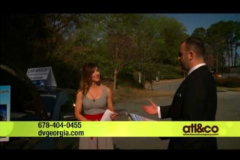 In Nevada, the statute of limitations on torts is 3 years, this means that you need to file suit against the at fault driver within 3 years of the accident.
In Nevada, the statute of limitations on torts is 3 years, this means that you need to file suit against the at fault driver within 3 years of the accident.
If the insurance company is offering you an unfair loss in value amount, you need to hire an independent appraiser to rebut their valuation.
You can also escalate the claim by contacting the Nevada Insurance Commissioner.
To get the process started and to get a free estimate, please fill out the form below.
Insurance Bad Faith in Nevada
Citation: Nev.Rev.Stat. §686A.310
NRS 686A.310 Unfair practices in settling claims; liability of insurer for damages.
1. Engaging in any of the following activities is considered to be an unfair practice:
(a) Misrepresenting to insureds or claimants pertinent facts or insurance policy provisions relating to any coverage at issue.
(b) Failing to acknowledge and act reasonably promptly upon communications with respect to claims arising under insurance policies.
(c) Failing to adopt and implement reasonable standards for the prompt investigation and processing of claims arising under insurance policies.
(d) Failing to affirm or deny coverage of claims within a reasonable time after proof of loss requirements have been completed and submitted by the insured.
(e) Failing to effectuate prompt, fair and equitable settlements of claims in which liability of the insurer has become reasonably clear.
(f) Compelling insureds to institute litigation to recover amounts due under an insurance policy by offering substantially less than the amounts ultimately recovered in actions brought by such insureds, when the insureds have made claims for amounts reasonably similar to the amounts ultimately recovered.
(g) Attempting to settle a claim by an insured for less than the amount to which a reasonable person would have believed he or she was entitled by reference to written or printed advertising material accompanying or made part of an application.
(h) Attempting to settle claims on the basis of an application which was altered without notice to, or knowledge or consent of, the insured, or the representative, agent or broker of the insured.
(i) Failing, upon payment of a claim, to inform insureds or beneficiaries of the coverage under which payment is made.
(j) Making known to insureds or claimants a practice of the insurer of appealing from arbitration awards in favor of insureds or claimants for the purpose of compelling them to accept settlements or compromises less than the amount awarded in arbitration.
(k) Delaying the investigation or payment of claims by requiring an insured or a claimant, or the physician of either, to submit a preliminary claim report, and then requiring the subsequent submission of formal proof of loss forms, both of which submissions contain substantially the same information.
(l) Failing to settle claims promptly, where liability has become reasonably clear, under one portion of the insurance policy coverage in order to influence settlements under other portions of the insurance policy coverage.
(m) Failing to comply with the provisions of NRS 687B.310 to 687B.390, inclusive, or 687B.410.
(n) Failing to provide promptly to an insured a reasonable explanation of the basis in the insurance policy, with respect to the facts of the insured’s claim and the applicable law, for the denial of the claim or for an offer to settle or compromise the claim.
(o) Advising an insured or claimant not to seek legal counsel.
(p) Misleading an insured or claimant concerning any applicable statute of limitations.
2. In addition to any rights or remedies available to the Commissioner, an insurer is liable to its insured for any damages sustained by the insured as a result of the commission of any act set forth in subsection 1 as an unfair practice.
Loss in Value Questionnaire (Will take 2 minutes of your time)
Please fill out the form below to receive a FREE Diminished Value estimate.






